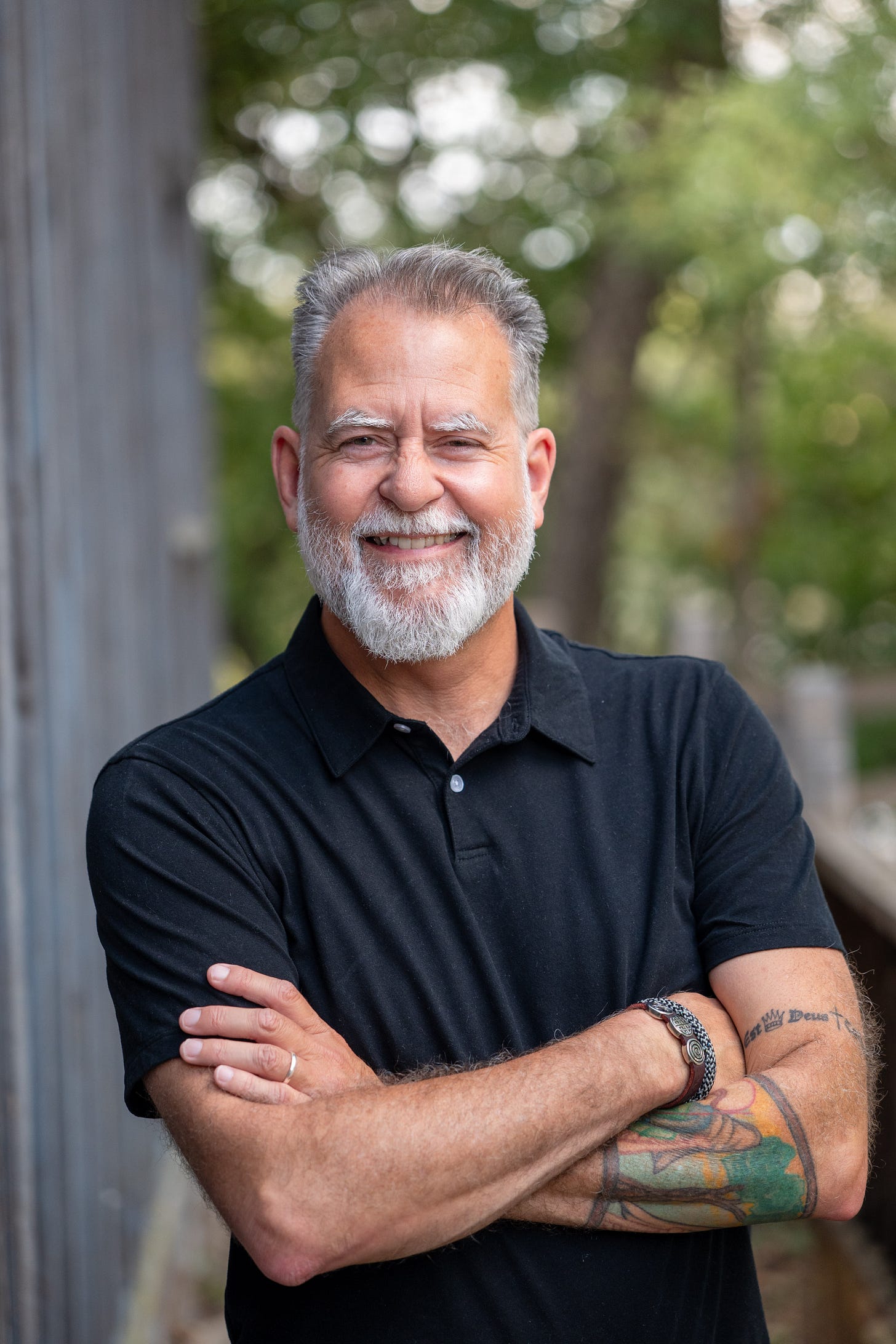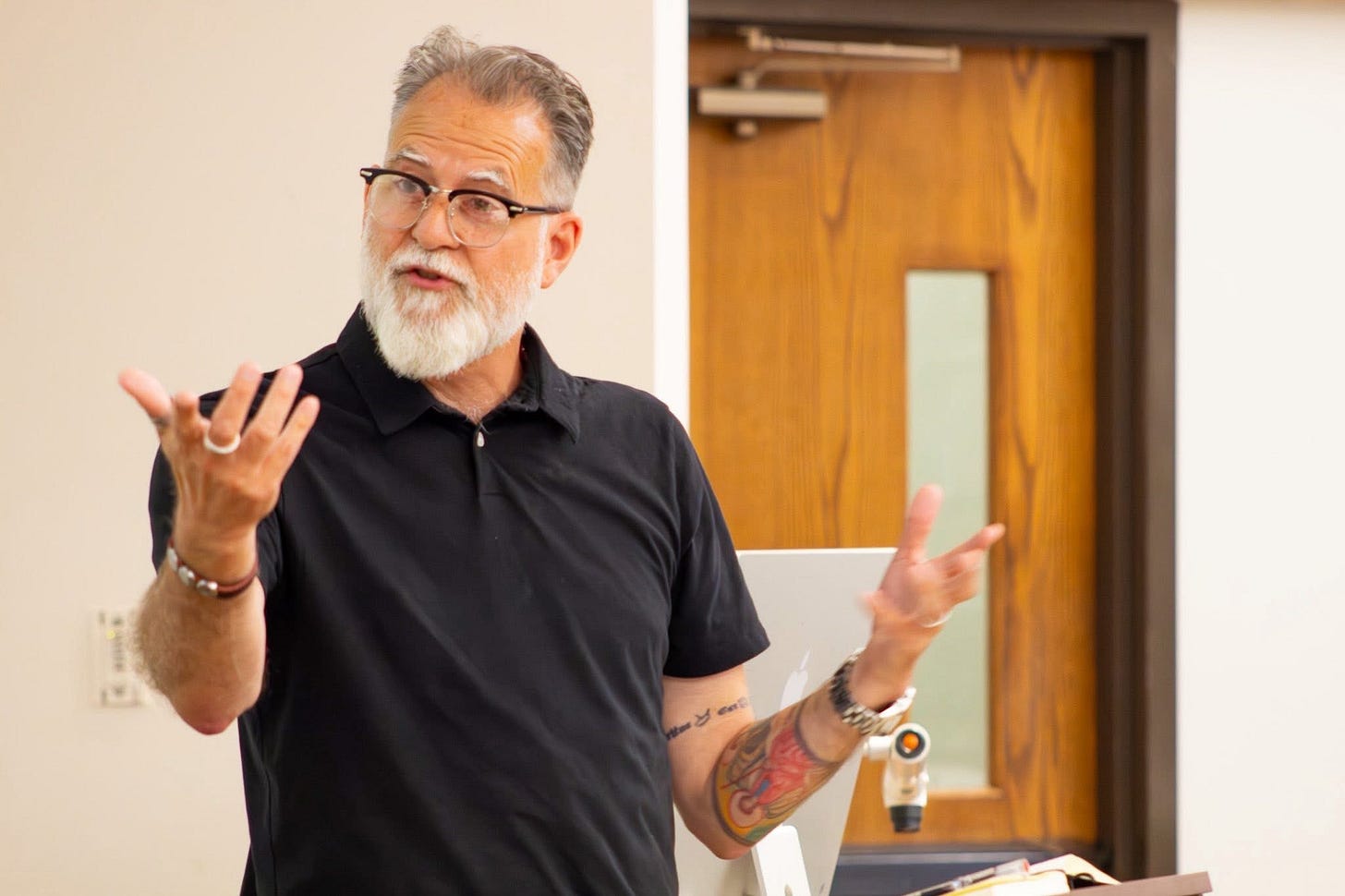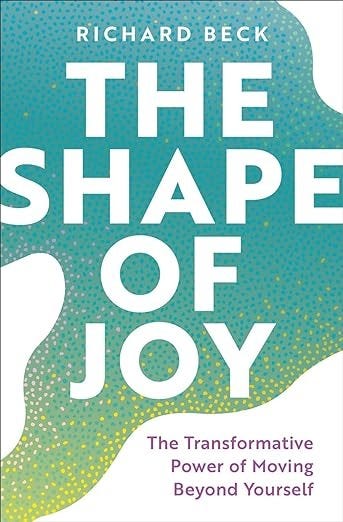Welcome to the Experimental Theology blog on Substack exploring the intersections of Christian faith and psychology with author and psychologist Richard Beck.
Richard is a Professor in the Department of Psychology at Abilene Christian University and is the Senior Fellow of the Saunders Center for Joy and Human Flourishing. Richard also teaches in the Doctor of Ministry programs at Fuller Theological Seminary and Abilene Christian University.
Here’s the Google Scholar link for Richard’s research.
Richard’s most recent book (order at Amazon, Barnes & Noble, Bookshop) is The Shape of Joy: The Transformative Power of Moving Beyond Yourself:
Richard's other books include Hunting Magic Eels: Recovering an Enchanted Faith in a Skeptical Age (Broadleaf Books, 2021), Trains, Jesus and Murder: The Gospel According to Johnny Cash (Fortress Press, 2019), Stranger God: Meeting Jesus in Disguise (Fortress Press, 2017), Unclean: Meditations on Purity, Hospitality and Mortality (Cascade, 2011), The Slavery of Death (Cascade, 2013), The Authenticity of Faith: The Varieties and Illusions of Religious Experience (ACU Press, 2012), and Reviving Old Scratch: Demons and the Devil for Doubters and the Disenchanted (Fortress Press, 2016).
Richard is married to Jana, who is a High School theater teacher, and they have two sons, Brenden and Aidan. The Becks attend the Highland Church of Christ in Abilene, TX, where Richard serves as an elder and adult faith Bible class teacher.
Lastly, Richard serves as a prison chaplain at the maximum-security French Robertson unit and has written and spoken extensively about his experiences working among the incarcerated.
To explore speaking engagements for your church or organization email beckr@acu.edu.
For the interested, the tagline of the blog on its landing page—“Drawing Large and Startling Figures”—comes from the Catholic novelist and short-story writer Flannery O’Connor.
As an author of faith in an increasingly secular and post-Christian culture, O’Connor knew that the readers of her fiction did not share her metaphysical and religious commitments. How, then, to communicate spiritual truths to an uncomprehending world? Describing the strategy behind her writing, O’Connor shared this:
“When you can assume that your audience holds the same beliefs you do, you can relax and use more normal means of talking to it; when you have to assume that it does not, then you have to make your vision apparent by shock — to the hard of hearing you shout, and for the almost-blind you draw large and startling figures.”




